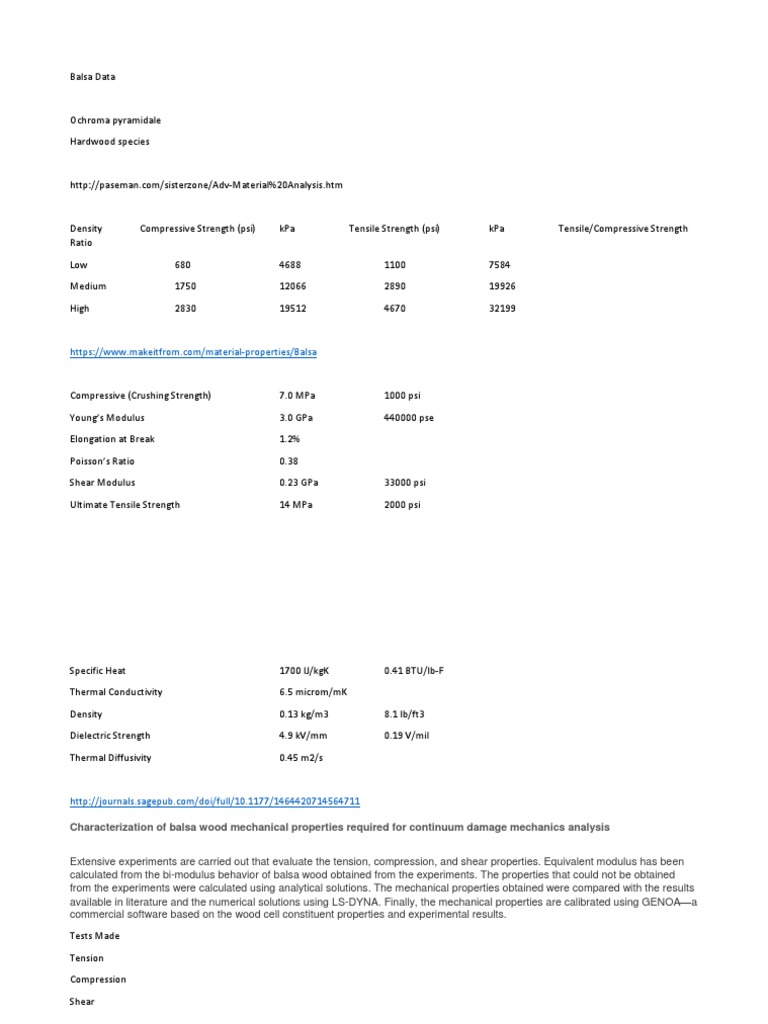Balsa Structure Wood Properties and Strength

Balsa Structure Wood Properties and Strength are vital factors in numerous industries. Imagine a material that’s incredibly lightweight yet remarkably strong, a material with exceptional properties that can be seamlessly integrated into countless applications. This material is balsa, and its use is on the rise. This in-depth guide delves into the fascinating world of balsa, exploring its properties, the factors influencing its strength, and its practical applications. We’ll investigate its unique characteristics and demonstrate its superior strength-to-weight ratio with real-world examples.
Unveiling the Light yet Strong: An Introduction to Balsa
Understanding the Unique Characteristics of Balsa Wood
Balsa wood, known for its remarkable lightness and exceptional strength-to-weight ratio, is rapidly gaining traction in various industries. This unique characteristic makes it a premier choice for applications where weight reduction and strength are crucial considerations. Its lightness stems from its low density, a key facet impacting its structure and use cases. Balsa has a specific gravity well below 1, making it remarkably buoyant. This naturally light composition is a critical part of its appeal across diverse industries. One of the most impressive facets of balsa wood is how efficiently its structure can be maximized for varied needs, allowing for unique applications.
The Significance of Density in Balsa's Performance
Impacting the Strength and Stability
The density of balsa plays a crucial function in determining its structural performance. Unlike many other types of wood, balsa’s light density significantly impacts its strength-to-weight ratio. The density of balsa is an crucial consideration during various applications and constructions. A key facet to recognize is the discrepancy in density across varied balsa wood types and sources, with some varieties boasting even lower densities than others. This discrepancy underlines the need for careful selection and testing prior to use in crucial projects.
Strength-to-Weight Ratio: A Comparative Overview
Exploring Balsa's Exceptional Performance
Balsa wood’s exceptional strength-to-weight ratio makes it an ideal choice for a variety of applications. Compared to other types of wood, balsa exhibits significantly higher strength relative to its weight, contributing to its widespread use in various applications. Its low weight allows for significant reductions in overall weight and therefore structural design complexity in manufacturing and constructions. In many industries, where cost-efficacy and performance are paramount, balsa is making a noticeable impact. The unique blend of these properties makes balsa a revolutionary material for many innovative designs.
Applications Across Diverse Industries
Exploring the Versatility of Balsa
The versatility of balsa is quite remarkable, extending its reach across diverse industries. From the aerospace industry to model construction, balsa’s distinctive attributes contribute to efficient and effective solutions. Balsa is frequently utilized in the creation of model airplanes and other model kits because of its ease of workability. Its lightweight nature, combined with its exceptional strength, makes it a prime choice for creating lightweight, yet durable components. This remarkable material continues to evolve in use cases, highlighting its remarkable attributes.
Environmental Factors and Balsa's Durability
Understanding the Influence of Moisture and Temperature
Balsa wood, like any natural material, is susceptible to environmental factors, such as moisture and temperature fluctuations. Understanding these factors is critical for maintaining the integrity and quality of balsa wood structures. Exposure to excessive moisture can lead to structural damage, while extreme temperature variations can lead to dimensional changes. The properties of balsa are more sensitive to moisture than some other wood types.
Conclusion
FAQ
FAQ
FAQ
In conclusion, understanding Balsa Structure Wood Properties and Strength is crucial for various applications, from construction to crafting. Its lightweight nature and exceptional strength-to-weight ratio make it a remarkable material. By carefully considering the factors influencing its performance, from its inherent qualities to environmental conditions, you can effectively utilize this unique wood. For detailed technical specifications, or to discuss bespoke projects requiring this exceptional material, contact us today. We are committed to providing expert advice and guidance to help you realize the full potential of Balsa.
